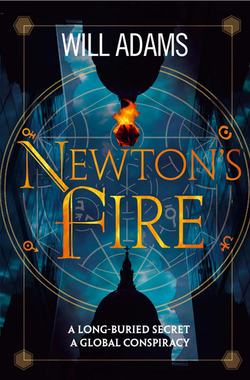Читать книгу Newton’s Fire - Will Adams - Страница 19
NINE I
ОглавлениеIt wasn’t easy, giving an abbreviated history of the Newton papers. Luke had to start way back. ‘Okay,’ he told Pelham. ‘Newton never married or had children, so he left all his papers to his niece Catherine. Her daughter married into the Portsmouth family, who offered them to Cambridge University back in the 1870s. Cambridge only wanted the scientific ones, so the rest were eventually auctioned off by Sotheby’s in 1936. Sotheby’s kept a record of who bought every lot. Most of the buyers were well-known dealers, but there were some private collectors too. The economist John Maynard Keynes bought a huge number of the alchemical lots; and a Sephardic Jew called Yahuda bought a bunch of theological papers that were later used to support the case for a Jewish homeland.’
‘You what?’ asked Pelham.
‘I know it sounds strange, but the British were occupying Palestine at the time. Newton was the great man of British science, so his belief in the restoration of a Jewish state really meant something.’
‘And Newton wanted a Jewish state, did he?’
Luke nodded. ‘A lot of them did back then,’ he said. ‘They believed it was a necessary precondition of the Second Coming. But the point is that we know where the great majority of lots ended up. Keynes left all his to King’s College Cambridge, for example. Yahuda’s eventually went to the National Library of Israel.’ He glanced at Pelham. ‘Remember when Jay went to Jerusalem that time? That was to see the Yahuda archive.’
‘But some of the Sotheby’s lots have gone missing,’ suggested Pelham. ‘And this lawyer hired you to find them.’
‘More or less. It was good money, it meshed perfectly with my research and it wasn’t particularly demanding. I mean it’s not exactly Sherlock Holmes. Mostly it’s afternoons in reference libraries and public records offices, or writing letters and waiting for replies. The lawyer kept pushing me, but honestly there was only so much I could do. People have been hunting for the damned things for years, after all. It wasn’t as if I was likely to do any better.’
‘But you did?’
‘There were these buyers we call the three Ms,’ said Luke. ‘They have no connection with each other, except that they each bought one of the missing lots, and their surnames all begin with the letter M. May, Manning and Martin. Not much to go on, but I figured I could narrow it down. For example, they most likely lived in or around London. Any further away, they’d likely have bid through a dealer. And if they’d made a special trip for the auction, then surely they’d have bought more than one lot.’
Pelham nodded. ‘Makes sense.’
‘So I went through various 1936 London and Home Counties directories for plausible candidates, then tracked descendants through obits and wills and the like.’
‘Sounds a hoot.’
‘It was, curiously. Or a distraction, at least. Anyway, I got no joy from that, so I tried alternate spellings instead. Mays, for example. Munnings. Martyn with a “y” rather than an “i”.’
‘Ah,’ said Pelham. ‘I sense we’re getting somewhere.’
‘A Bernard Martyn lived in an apartment in Bruton Place in 1936, just a short stroll from Sotheby’s. I checked into him: a particle physicist with a special interest in light.’
‘So bound to be interested in Newton?’
‘You’d think so, wouldn’t you? And likely to be pretty well off, too, with an address like that. Not that these lots were expensive; not for what they were. Ten to fifteen guineas, that kind of thing. About £500 in modern money. The entire collection only raised nine grand.’
‘What would they be worth now?’
‘God knows. They don’t often come up for sale. And it depends massively on how interesting it is. Twenty or thirty grand for anything half decent. And if it’s unusual, if it hints at original thinking …’ He shook his head. ‘A hundred grand easily. Quite possibly two or even three.’
‘No wonder your client wanted them.’
‘Anyway, Bernard Martyn died back in 1969. He was childless, so his estate passed to his nephew George. George died too, a few years back, leaving the residue to his widow Penelope. I tracked her down to the family pile in the Fens, so I wrote to ask her if, by any chance, she knew where Bernard Martyn’s belongings were. They’re up in my attic, she replied, covered by dust sheets. No one’s looked at them in decades.’
‘So you got in your car and drove on down?’
‘And what should I find in one of the boxes,’ agreed Luke, ‘but four pages of Isaac Newton’s alchemical notes?’ He told Pelham everything that had happened since, finishing with his arrival at Cherry Hinton Science Park.
‘Bugger me,’ said Pelham. ‘You have had a day.’
‘So you see why I need Rachel Parkes. Her aunt’s email and those photos are all I’ve got. If those bastards delete them, I’m toast.’
